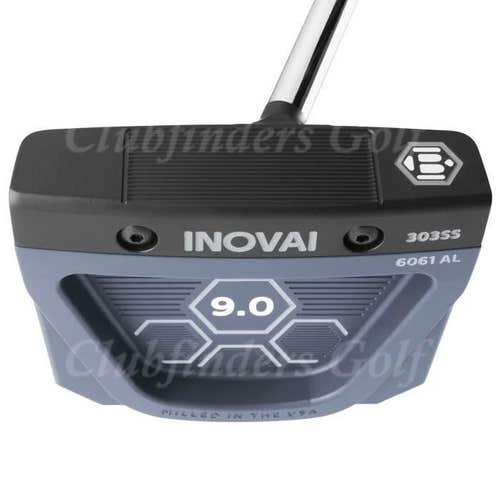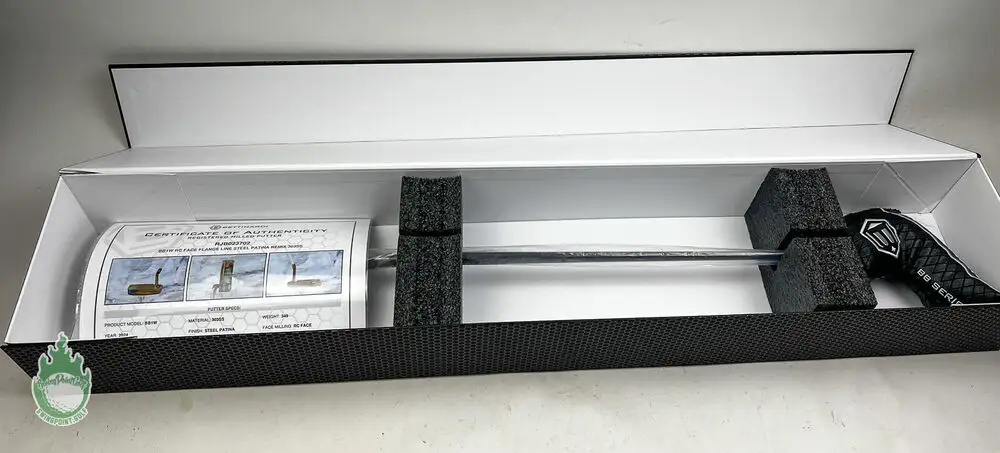- Cobra Golf Putters
- Odyssey Golf Putters
- Evnroll Golf Putters
- TaylorMade Golf Putters
- Cleveland Golf Putters
- Golf Pride Golf Putters
- HEAD Golf Putters
- Ping Golf Putters
- Wilson Golf Putters
- Mizuno Golf Putters
- Scotty Cameron Golf Putters
- Titleist Golf Putters
- Tour Edge Golf Putters
- Adams Golf Putters
- Arnold Palmer Golf Putters
- Lynx Golf Putters
- Wilson Staff Golf Putters
Putter length is generally measured by the distance from the golfer’s palms to the ground. Men’s putters are mostly found in 34” and 35,” while women’s putters are standard at 33." Most golfers will be able to use shorter lengths than what is considered "standard."
As shown here:
| Golfer Height | Putter Length |
| 6'0" or taller | 35" of longer |
| 5'9" to 5'11" | 34" |
| 5'3" to 5'9" | 33" |
| 5'0" to 5'3" | 32" |
Putter types vary based on the shape and size of the head, with mallet and blade being the most common. Finding the right putter type for your stroke can be crucial to finding consistency on the green.
As shown here:
| Putter Type | Description |
| Blade | Blade putter heads fairly small and light, recommended for golfers with pure, straight strokes. |
| Mallet | Mallets have a large, rounded clubhead and represent the heaviest putters of the market. The larger clubhead provides a bigger sweet spot for golfers. |
| Counterbalanced | Counterbalanced putters are longer and heavier than traditional putters. Extra weight is placed at the top of the shaft above the golfer's hands in order to create a higher balance point. |
| Belly | Belly putters have an extended shaft that brush up against the golfers midsection. |
Blade Putters: These traditional putters have a simple, blade-shaped head. They offer a classic look and feel, and are often preferred by golfers who value precision and touch.
Mallet Putters: These putters have a larger, mallet-shaped head. They provide increased stability and forgiveness on off-center hits. The larger head also helps with alignment.
Peripheral-Weighted Putters: These putters have weight distributed around the perimeter of the head, creating a higher Moment of Inertia (MOI). This design promotes stability and forgiveness, making it easier to hit consistent putts.

